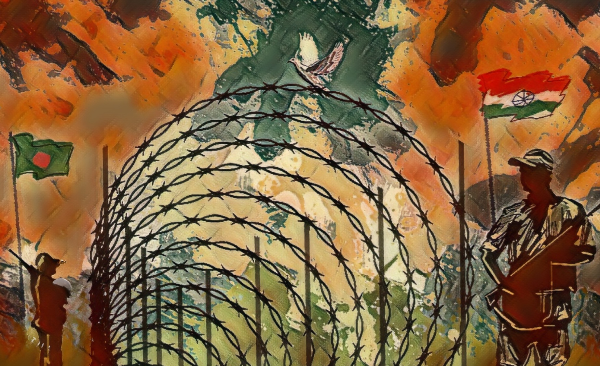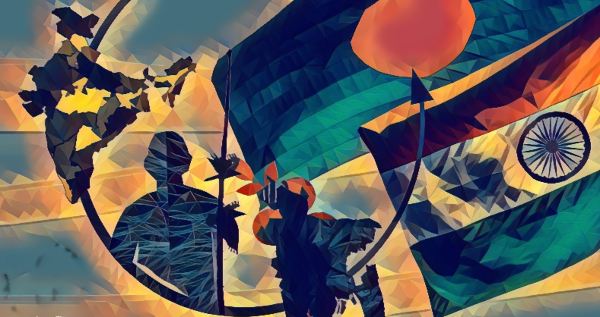India's neighborly neglect: Time for a policy overhaul? Especially towards Bangladesh?

In a world shifting from a single superpower to multiple centers of power, India is steadily emerging as a prominent player. With its sights set on a permanent seat on the UN Security Council, India is poised to take on a greater role in shaping the global landscape.
However, this elevated status comes with significant responsibilities. To truly be accepted as a leader, India must demonstrate not only its strength but also its legitimacy, ethical conduct, and ability to wield both soft and hard power effectively.
India's ascent is happening against the backdrop of a complex and often challenging neighborhood. It shares borders with both allies and adversaries, large and small, each with its own set of interests and concerns.
While past conflicts with China and Pakistan underscore the complexities of international relations, many former foes have eventually forged friendly ties. However, smaller neighbors like Sri Lanka have grown closer to China, and even predominantly Hindu Nepal has distanced itself from India despite the BJP government’s emphasis on Hindutva.
Bangladesh, once a beneficiary of substantial Indian support during its liberation struggle, has also seen public sentiment turn largely against India.
The Maldives, a small island nation, recently elected a president amid a wave of anti-Indian sentiment. Bhutan, perhaps the only neighbor maintaining relatively cordial relations with India, also appears to be gravitating towards China, as evidenced by the Bhutanese Foreign Minister's visit to Beijing in October 2023.
Meanwhile, China, now India’s biggest regional rival, has positioned itself as a key player, often acting as a strategic or development partner for countries like Pakistan, Sri Lanka, Nepal, the Maldives, Bhutan, and Bangladesh. Notably, China tends to avoid interfering in their internal affairs, which has seemingly attracted nations traditionally aligned with India.
India's unease with this shift begs the question: is it a result of India's own policies, doctrines, strategic realism, or strategic culture? To understand this, we must delve into India's policy and doctrinal outlook, which is heavily influenced by the ancient strategist Chanakya Kautilya.

Getting a grasp on India’s different doctrines
Kautilya's Arthashastra outlines four key approaches to statecraft: Sama (alliances), Dana (gifts), Bheda (divide and rule), and Danda (use of force).
We must now consider whether these strategies are shaping India's current interactions with its neighbors, or if they are relics of the past with little relevance in today's policy context. Let's analyze these doctrines to assess their impact on India's behavior.
The Indira Doctrine, prevalent during Indira Gandhi's leadership, asserted India's role as a regional powerhouse with legitimate security interests in South Asia. This doctrine justified interventions like India's military actions in Sri Lanka in 1987 and the Maldives in 1988.
In contrast, the Gujral Doctrine, championed by Inder Kumar Gujral, advocated a more benevolent approach towards smaller neighbors. It emphasized non-interference, respect for sovereignty, and peaceful conflict resolution. This approach notably contributed to the 1997 peace accord in the Chittagong Hill Tracts.
Comparing these doctrines, the Indira Doctrine leans towards structural realism, prioritizing India's power and security interests. The Gujral Doctrine, on the other hand, aligns with liberal principles of cooperation and non-interference.
It's possible that India's recent foreign policy has shifted closer to the Indira Doctrine, moving away from the Gujral Doctrine's liberal ideals. This shift could be a contributing factor to the strained relationships India currently has with some of its neighbors.
Considering the current dynamics, it's uncertain whether neighboring countries will readily support India's bid for a permanent UN Security Council seat. If its neighbors express dissatisfaction, the international community might question India's legitimacy for such a crucial role.

Why should India renew its approach
towards Bangladesh?
India needs to acknowledge the unique and complex relationship it shares with Bangladesh. The two countries are deeply intertwined, sharing the world's fifth-longest border, which not only divides families and communities but also has porous sections.
Additionally, parts of India, like Tripura, are geographically embedded within Bangladesh. This interconnectedness is so profound that even Indian children often intuitively include Bangladesh when drawing maps of India.
The geographical reality is that Bangladesh lies directly beneath India's "armpit." Any instability in Bangladesh would create significant discomfort for India, much like a painful issue under one's arm.
Conversely, if India were to face challenges, Bangladesh would likely be affected due to their close ties. However, the impact of any instability in Bangladesh on India might not be as severe.
This reality underscores the importance of a stable and cooperative relationship between the two nations. It's in India's best interest to prioritize fostering goodwill and addressing any concerns its neighbors might have.
This approach will not only strengthen India's regional standing but also bolster its legitimacy on the global stage, including its pursuit of a permanent UN Security Council seat.
Considering the significant geostrategic, economic, and security implications, it would be detrimental for India to overlook Bangladesh or favor any particular faction within the country.
Recent developments in Bangladesh serve as a wake-up call for India to re-evaluate its approach towards its neighbor. A democratic, stable, and prosperous Bangladesh is undoubtedly in India's best interest.
Perhaps it's time for India to engage in introspection and rethink its neighborhood policies, doctrines, and strategic culture. This could pave the way for stronger and more enduring relationships with its neighbors, ensuring a more secure and prosperous future for the entire region.
—-
Lt Gen (Retd) Mohammad Mahfuzur Rahman, PhD is a former Lieutenant General of Bangladesh Army

